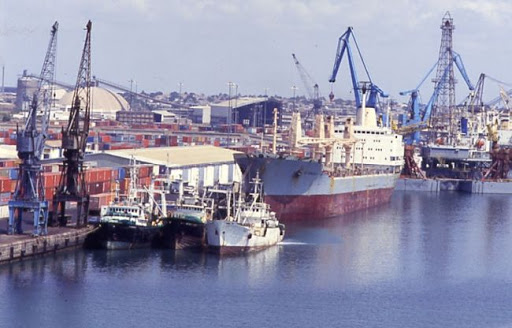
By Ibrahim ASARE
As stated in Articles 179 and 180 of the 1992 Constitution of the Republic of Ghana, the Executive is required to present an account of the management of the economy for 2025 and a budget statement for 2026 financial year to the Legislature for approval. The Budget Statement and Economic Policy of the government for 2026 was presented by the executive on 14th November 2025. The budget statement serves as the Financial Policy of the Government of Ghana which directs the financial and economic activities in the country.
From the budget statement, the government gave account of revenue generated and expenditures made up to September 2025 financial year and made projections on revenue to be generated for 2026 and estimated expenditure to be incurred for 2026.
Among the projected sources of revenue for the government is taxation. The government has made various proposals on taxation in the 2026 budget. The strategy is to deepen domestic resource mobilization through the implementation of the Medium-Term Revenue Strategy, undertake comprehensive VAT reforms, and tighten enforcement of tax arrears and exemptions, ensuring that all eligible entities pay their fair share with the expectation to lift non-oil revenue to 15.7 percent of GDP in 2026 from a projected 15.1 percent of GDP in 2025. This article is to provide highlights of tax issues raised in the 2026 budget statement and proffer my opinion on some topical tax issues in the budget which can inform authorities in their approach to implementation and legislations formulation.
Highlights of Tax Issues in the 2026 Budget Statement
Below are highlights of tax issues in the 2026 budget statement:
Overhaul the Value Added Tax (VAT) regime
There will be an overhaul of the Value Added Tax (VAT) system to remove distortions, address the cascading effects inherent in the current VAT system, strengthen compliance, and create a tax regime that supports both business growth and fiscal stability, make it fairer, simpler and more efficient through the use of technology.
In this respect, the following changes are being implemented:
- abolish the Covid-19 Health Recovery Levy;
- abolish the decoupling of the GETFund and NHIL levies from the VAT tax base, allowing both levies to be subject to input tax deductions;
- abolish VAT on reconnaissance and prospecting of minerals;
- reduce the effective VAT rate from 21.9% to 20%;
- raise the VAT registration threshold from GHS200,000 to GHS750,000; and
- extend the VAT zero-rating on the supply of locally manufactured textiles to 2028.
These VAT reforms are expected to:
- by abolishing the COVID-19 levy, about GH¢3.7 billion in tax savings is expected to reflect in the pockets of individuals and businesses in 2026 alone.
- reduce the cost of doing business by 5% as result of subjecting the GETFund and NHIL levies to input-output deductibility. Altogether, the VAT reforms is expected to give back nearly GH¢6 billion to businesses and households.
- raise the VAT registration threshold from Ghs200,000 to Ghs750,000 revenue per annum due to the decline in the value of the cedi which has resulted in huge compliance burden on small businesses who ordinarily would not have been in scope for VAT but for the fall in value of the threshold. This means that small and micro businesses that were exempt in 2015 from VAT registration are now compelled to register and charge VAT but the review of the registration threshold, will afford them the exemption again from 2026.
- VAT on mineral exploration and reconnaissance has led to very little investment in minerals exploration over the past two decades. Abolishing VAT on mineral exploration and reconnaissance will revive investor confidence, stimulate greenfield activity, and ensure the long-term sustainability of the country’s mining sector. This measure will promote responsible mining and help to mitigate the haphazard mineral prospecting that degrades our forests and water bodies.
- support the domestic textile industry, Government’s zero-rated the VAT on supply of locally manufactured textiles which is due to end in December 2025. Government is resolute in supporting the domestic textile industry which has demonstrated the capability to expand when given the appropriate fiscal incentives. In line with this and the Ghana Textile and Garment policy, Government has decided to extend the zero rating to end of December 2028, protecting over 2,000 direct jobs.
- These VAT reforms which is basically on changes in the policy and legal framework of the VAT regime will make Ghana a more business-friendly economy and create the opportunity for business expansion and more jobs creation. This will be achieved through the deployment of electronic and digital solutions to improve VAT administration.
- Notice of future review of other tax laws like the Income Tax Act, 2015 (Act 896), Customs Act, 2015 (Act 891), and Excise Duty Act, 2014 (Act 878)
Government will embark on a comprehensive reform of Ghana’s key tax laws, including the Income Tax Act, 2015 (Act 896), Customs Act, 2015 (Act 891), and Excise Duty Act, 2014 (Act 878) to align them with economic realities, global best practices, promote equity and competitiveness, simplify compliance, and enhance revenue generation. The rise of e-commerce, the global push against Base Erosion and Profit Shifting (BEPS), and the OECD/G20 global minimum tax framework have all changed how countries mobilize tax revenue and protect their tax bases. The Ministry of Finance will commence these reviews in 2026, engage stakeholders and submit a draft bill to parliament as part of the 2027 Budget. This is an important call to address some of the challenges which have been identified in our tax laws.
- Efficient Tax collection system
The introduction of digital solutions for tax collection systems, allowing for the monitoring and collection of VAT on cross-border transactions conducted on digital platforms owned by non-resident taxpayers through the introduction and operationalization of Fiscal Electronic Devices (FED) to enhance compliance and facilitate the monitoring of taxable transactions by VAT taxpayers.
- The institution of reward schemes to encourage VAT compliance
The introduction of a VAT reward scheme, designed to encourage the general public to assist with policing VAT revenue by collecting VAT receipts for purchases they make. This will allow taxpayers use their VAT receipts to benefit from a VAT promotion and reward scheme. This will make compliance easier for businesses, strengthen revenue mobilisation, and enhance the credibility of our fiscal framework for 2026 and the medium term. it is a step toward a more just, predictable and business-friendly economy.

- Embark on comprehensive and sustained public tax education
The Ghana Revenue Authority will roll out a comprehensive public education and awareness campaign to ensure a smooth and transparent implementation of new tax reforms.
- Closing Revenue Leakages at the Ports
A recent audit revealed systemic weaknesses in classification, valuation, and cargo inspection which has led to significant leakages at our ports that continue to undermine revenue mobilization. In 2024 alone, Ghana recorded imports valued at GH¢204 billion (CIF), yet only GH¢ 85 billion was taxable, pointing to misclassification and under-invoicing. To tackle this, Government will deploy AI-driven pre-arrival inspections for all cross-border shipments.
This technology is programmed to detect under-valuation, flag high-risk goods, and strengthen Customs’ capacity to combat smuggling, improve safety, and protect national security. By integrating automation into port operations, we expect to significantly boost customs revenue, enhance trade efficiency, and close long-standing revenue gaps.
- Conclusion of negotiations on National Daily Minimum Wage
The Tripartite Committee has concluded negotiations on the National Daily Minimum Wage. The tax-free portion of the Individual Income Tax rates will accordingly be adjusted to take care of the change.
- Tax Administration reforms
The Independent Tax Appeals Board (ITAB) has completed its operational framework, pending full activation after the passage of the Revenue Administration Regulations, 2025. This will provide an impartial platform for tax dispute resolution to enhance transparency and easy in tax dispute resolution. The Ghana Revenue Authority is expected to complete the cleansing of its taxpayer registry and launch the first stage of the Integrated Tax Administration System (ITAS) by end of December 2025. Tax bills for Parliamentary approvals include the Value Added Tax (Amendment) Bill, the COVID-19 Health Recovery Levy (Repeal) Bill; the Ghana Education Trust Fund (GETFund) (Amendment) Bill; the National Health Insurance (Amendment) Bill; the Value for Money Bill; and the Revenue Administration Regulations, 2025.
- Tightening of the import transaction process
As part of measures to strengthen domestic revenue mobilisation and protect the integrity of the financial system, the Ministry of Finance conducted a comprehensive assessment of Ghana’s import transaction processes. The assessment exposed a staggering abuse of Import Declaration Forms (IDFs), a tool meant to support legitimate trade but now hijacked for illicit transfers and tax evasion.
The irregularities uncovered include:
- Importers transferring funds abroad in the name of importation with no goods brought in;
- Importers remitting more than the actual value of goods imported; and
- Banks approving transfers above the US$200,000 limit set by the Bank of Ghana without submitting supporting documentation.
The Government has set up an Inter-Agency Committee to audit all import-related transfers and work with the Bank of Ghana to ensure that the appropriate declarations are made by importers for appropriate taxes to be paid, and every forex transferred will be in line with verified import data. Persons and institutions behind breach of our import, tax, and financial laws shall be referred to the Attorney-General, EOCO, FIC and CID for investigations and prosecutions. Whilst the Ghana Revenue Authority establishes a special recovery unit to reclaim lost revenue.
Conclusion and Opinion
Generally, I can say that, I am satisfied with the tax measures proposed in the budget because it does not seek to introduce new taxes or increase exiting tax rates as a means of increasing tax revenues but it is seeking innovative ways to enforce existing tax laws to widen the tax net by roping in all legible taxpayers and importantly undertake the needed reforms in our tax systems. I am of the opinion that with Government’s fiscal discipline and reconditioned tax systems, the economy will be business friendly which will attract investments, promote economic growth and increase tax compliance and tax revenues.
Recommendations
I recommend a wholistic and broader consultation of stakeholders on the review of the other tax laws like the Income Tax Act, 2015 (Act 896), Customs Act, 2015 (Act 891), and Excise Duty Act, 2014 (Act 878) to ensure an outcome which is progressive and all embracing.
I wish to make a clarion call to all stakeholders especially tax practitioners to make their inputs towards these reforms to ensure that all issues identified in those laws are highlighted for consideration by policy makers.
I will be sending my inputs and I know you will also do same for a better tax system, and a better Ghana.
This article is my personal and professional opinion as a tax practitioner in the discharge of my duties as a GHANAIAN CITIZEN who seeks the success of Ghana, and it is not a representation of the opinion of any institution.
The author is a Chartered Tax Practitioner- a Member of ICAG and a Member of the Chartered Institute of Taxation Ghana).
[email protected]; [email protected]; @ib_asare; 0244 423 960
The post Tax Highlights of the 2026 Budget Statement: …My take on the way forward appeared first on The Business & Financial Times.
Read Full Story
















Facebook
Twitter
Pinterest
Instagram
Google+
YouTube
LinkedIn
RSS